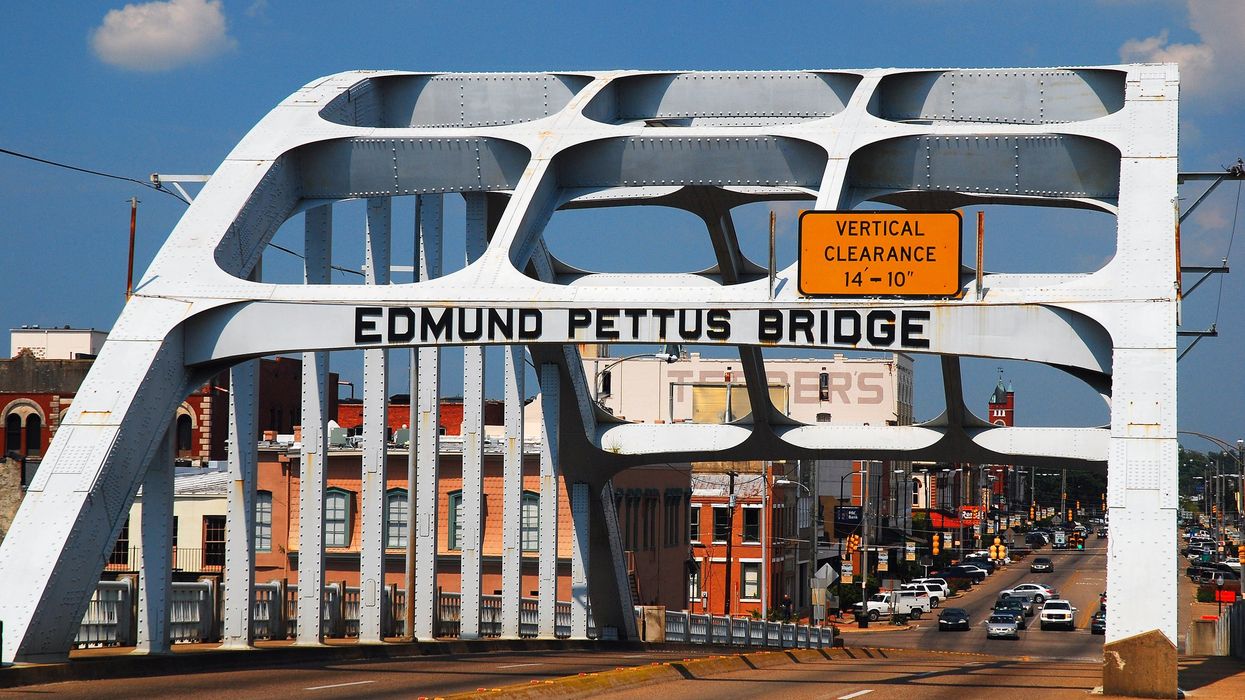In 1965, Selma, AL, pierced the consciousness of the nation when civil rights marchers crossed the Edmund Pettus Bridge. They helped us see and propel the work we needed to do in this country to move forward in a new, more hopeful way.
Today—amid our crisis of belief and widespread societal turmoil—Selma can remind us of the work we need to do as individuals, as communities, and as a nation. We don’t need more divisive politics. We need to get on a new civic path that begins in our local communities and grows and spreads nationwide.
It’s time to go over the bridge again today.
If I’ve learned anything as I take my Campaign for the New Civic Path from coast to coast this year, it is this: Americans are hungry for a new path forward, and they are ready to go! But we need more real and compelling touchpoints that help us see a way forward and that call us to be part of something larger than ourselves.
That’s why, on August 20 at 7 p.m. ET, my campaign is releasing an original short documentary film called Selma, Beacon of Hope. I hope you’ll join us for this premiere, which will include an interactive discussion about the film’s implications for how we move forward.
I see the film as a call-and-response for the country. A call that we can find a way forward through the chaos and confusion now threatening to envelop our shared lives. A call that we can come together, amid our real divides, and restore our belief in one another and our nation. A call that we can be builders and doers and get things done together. A call that the change we need today is going to start in our local communities and spread throughout the nation. Just like it did in Selma in 1965.
The response? I’m betting on Selma and other communities across the country to step forward and lead us in a more hopeful direction. Because it’s our local communities, not our toxic national politics, that will produce the change we need and restore the sense of belief we yearn for.
Selma, like so many other places across this country, is no stranger to challenges. During my visits there these past years, I have seen persistent poverty, crumbling infrastructure, empty storefronts, and dilapidated houses. It is a community in danger of being left out and left behind. A place where people do not feel seen and heard.Where there is a need to uphold each individual's dignity as a god-given right.
One young resident I interviewed for the film—who works as a local barber—expressed that his relationship to Selma was “bittersweet.” It is a place where he has felt immense love even as he readily acknowledged the community’s deep challenges. He personifies the complex relationship to the country that so many Americans hold today.
Yet those conflicting feelings led him to tell me: “We’re due for change. We’re due for growth. It’s time for us to make a difference. Generations before us, they made their difference. It’s our time.”
Indeed, in Selma, as in so much of this country, I have witnessed a fierce and undying spirit. One that has lived on for 60 years since those marchers crossed the bridge. One that, for all our flaws and civic stains, was there from our nation’s very founding. Perhaps at times waning, but yet undimmed. Undying.
This Selma spirit is giving rise to a slow, nascent rebuilding—of homes, businesses, schools, public spaces, and, yes, a new sense of belonging and dignity. Another individual highlighted in the film, the local public library director, told me, “I believe in this little town. More than the town, I believe in its people. The spirit of community is very much alive here.”
There is so much good in Selma. There is so much good in this country and our people. This is what we must build on. Together.
It’s natural to look at Selma and the Edmund Pettus Bridge and see just a symbol of past struggle and achievement. When I look at them, I see our shared future, too. Not a future where we are simply Republicans or Democrats or independents. But a future where we are Americans, forging a new civic path that finally enables us to address the underlying challenges that hold us back.
Just like in 1965, Selma has what it takes to be a beacon of hope, pointing the way forward again. Your community does too. It’s time for us—all of us—to go back over the bridge.
Attend The Harwood Institute’s national virtual premiere of Selma, Beacon of Hope, on August 20 at 7 p.m. ET by RSVPing here. The event is free and open to all.




















